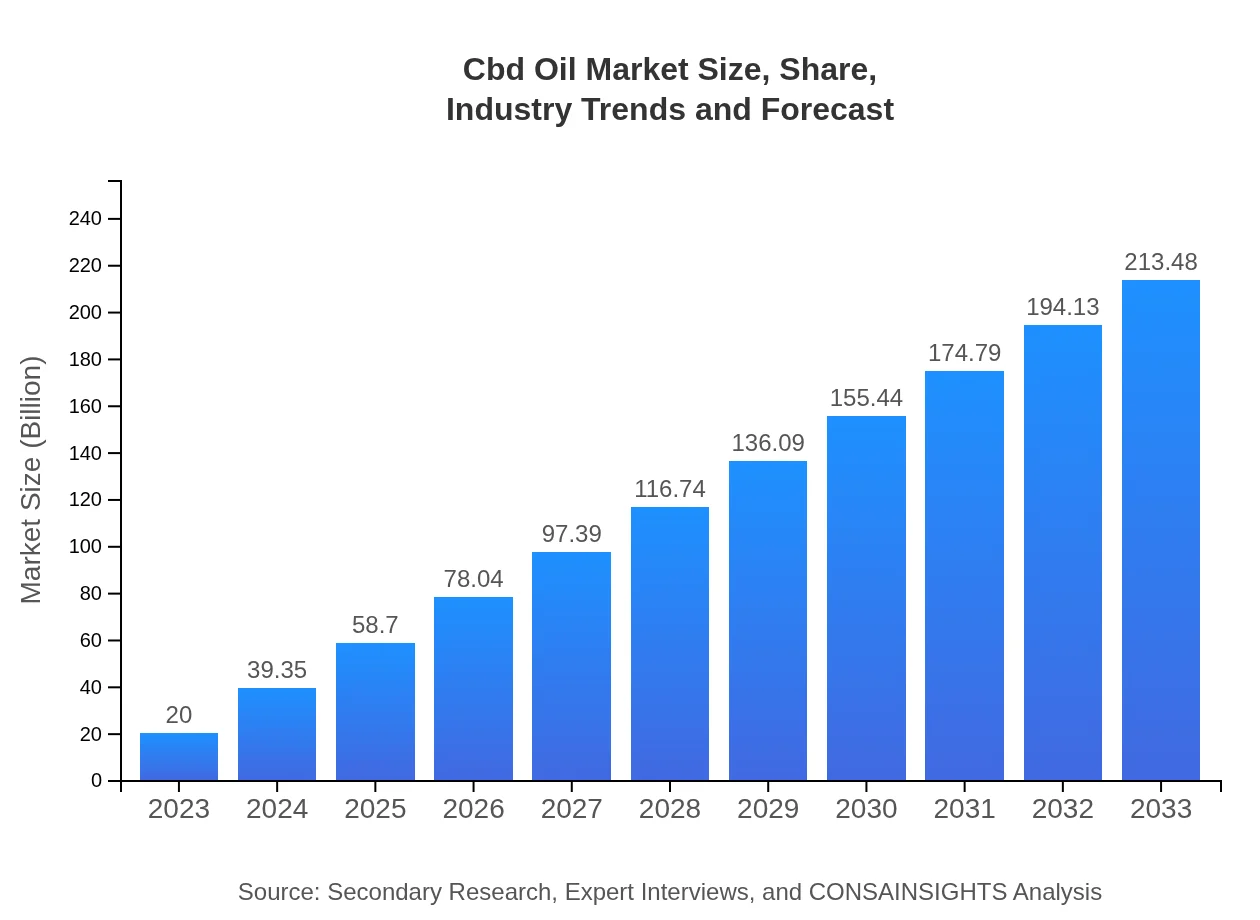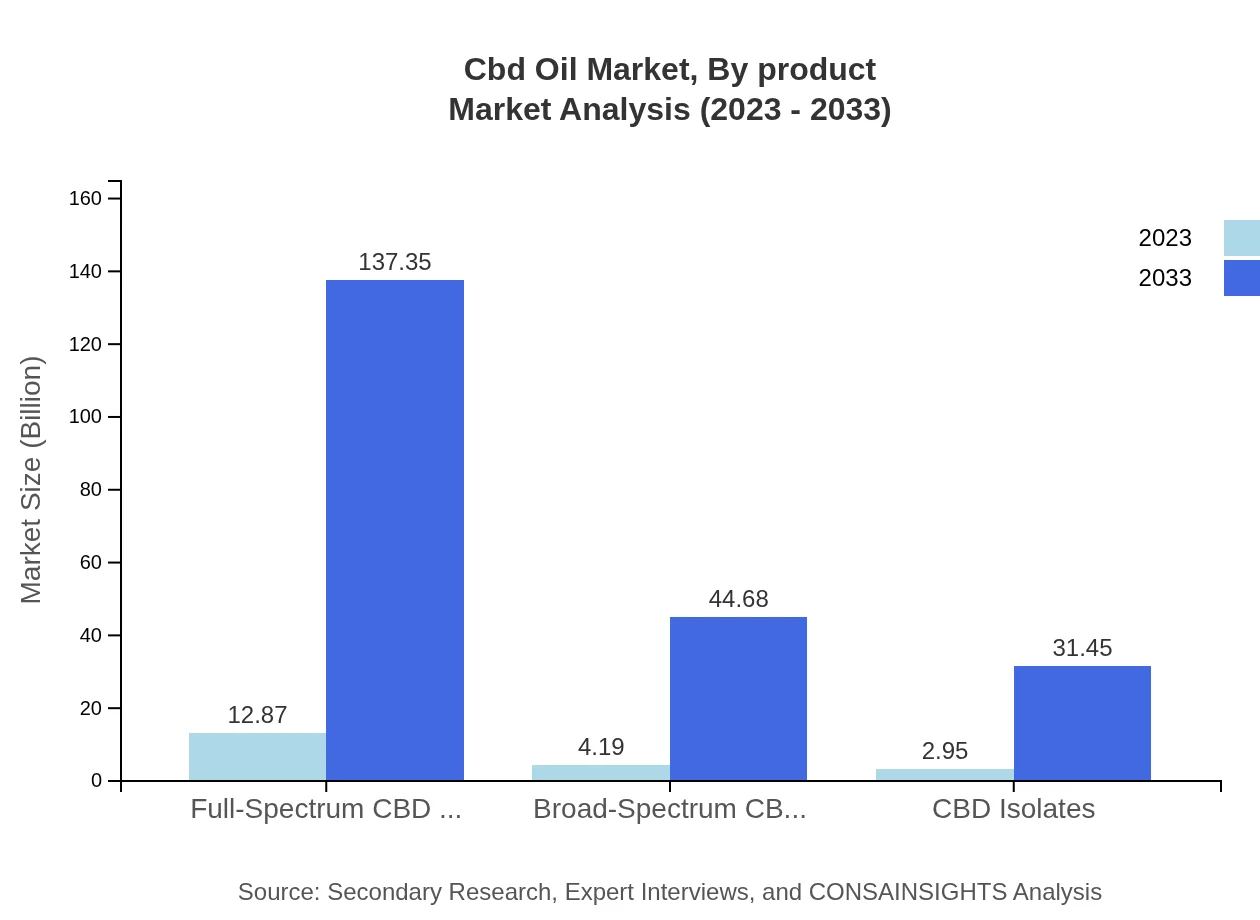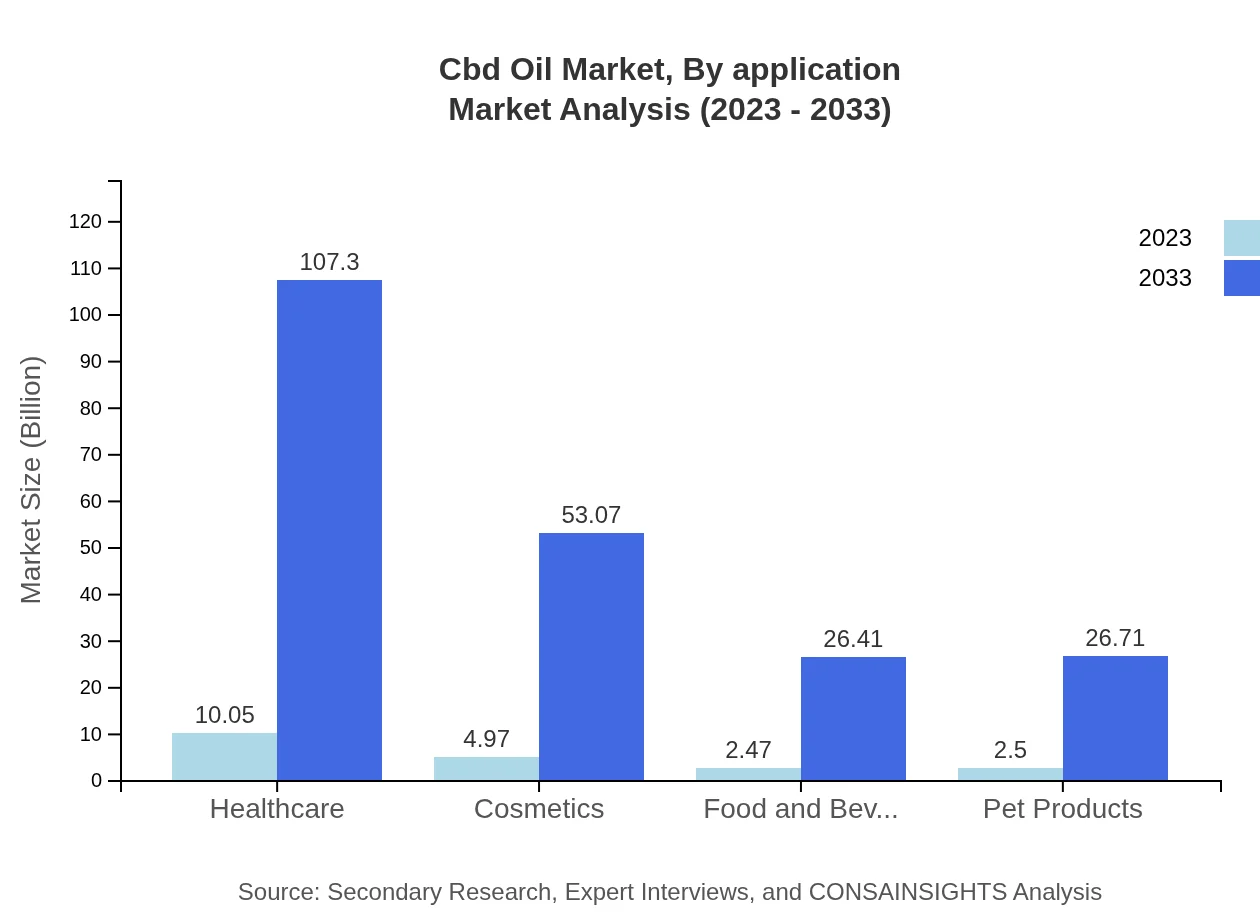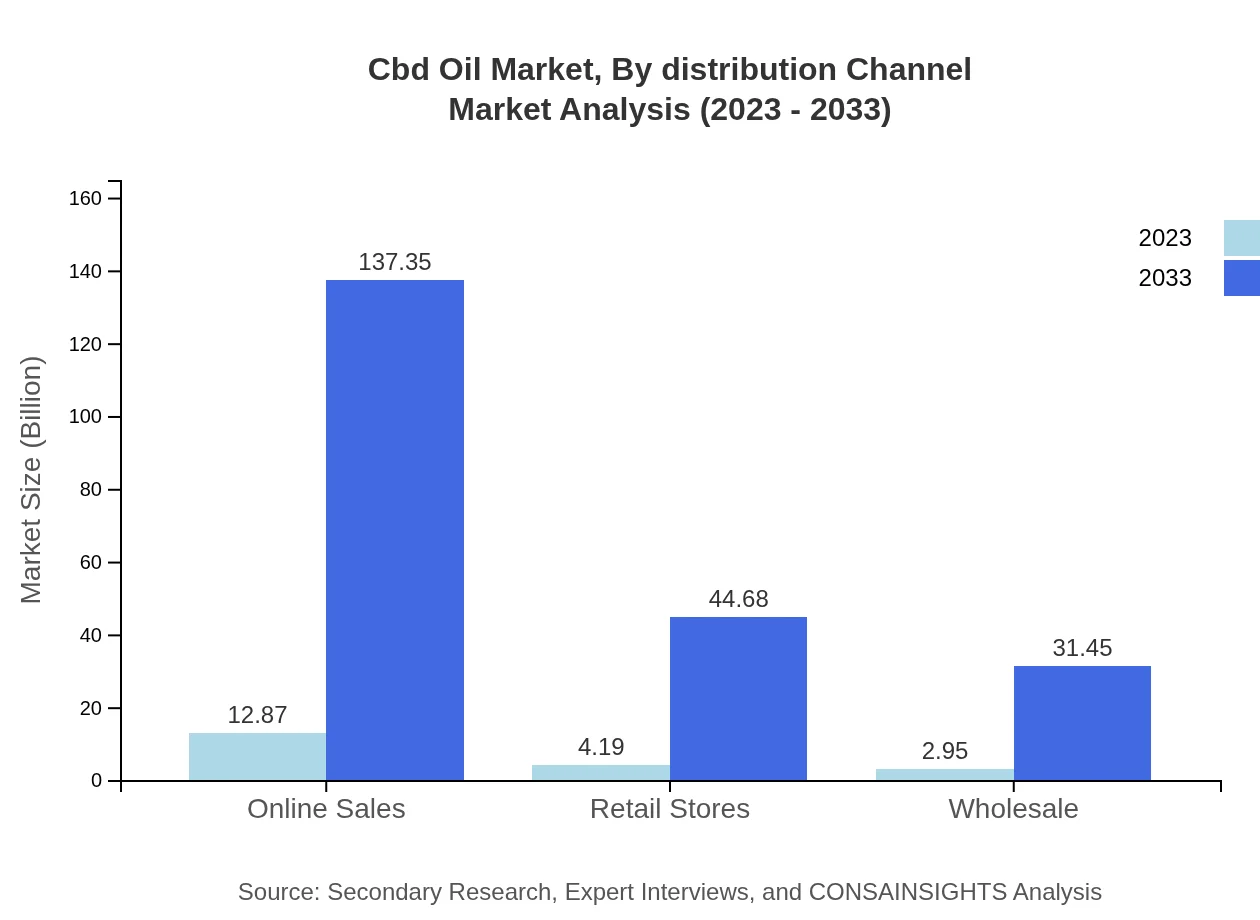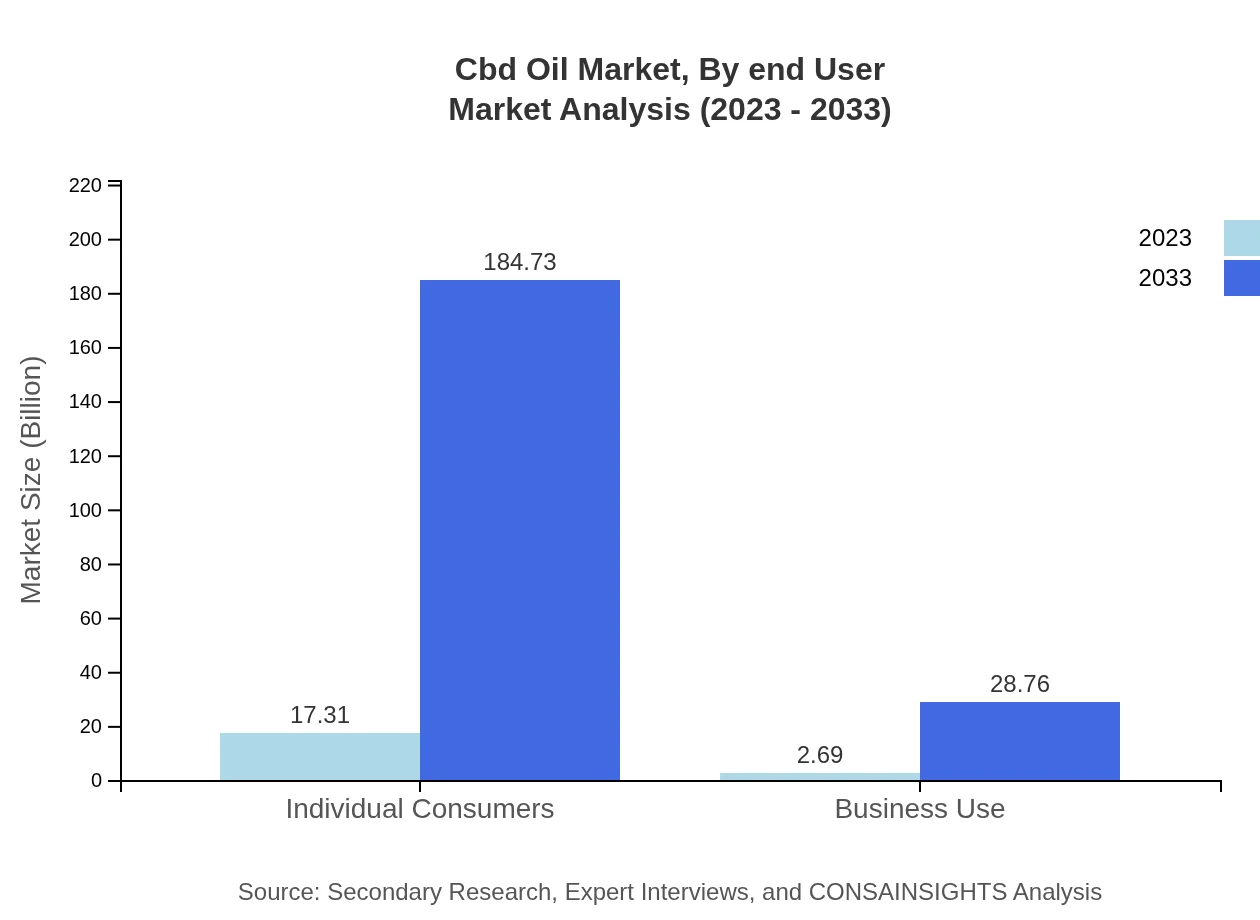Cbd Oil Market Report
Published Date: 31 January 2026 | Report Code: cbd-oil
Cbd Oil Market Size, Share, Industry Trends and Forecast to 2033
This report provides a comprehensive analysis of the CBD Oil market from 2023 to 2033, focusing on market trends, growth forecasts, and segment performance. Insights into regional developments and key players within the industry are also included to aid understanding of the market dynamics.
| Metric | Value |
|---|---|
| Study Period | 2023 - 2033 |
| 2023 Market Size | $20.00 Billion |
| CAGR (2023-2033) | 25% |
| 2033 Market Size | $213.48 Billion |
| Top Companies | Charlotte's Web, Canopy Growth Corporation, CV Sciences, Green Roads, CBDistillery |
| Last Modified Date | 31 January 2026 |
CBD Oil Market Overview
Customize Cbd Oil Market Report market research report
- ✔ Get in-depth analysis of Cbd Oil market size, growth, and forecasts.
- ✔ Understand Cbd Oil's regional dynamics and industry-specific trends.
- ✔ Identify potential applications, end-user demand, and growth segments in Cbd Oil
What is the Market Size & CAGR of CBD Oil market in 2023?
CBD Oil Industry Analysis
CBD Oil Market Segmentation and Scope
Tell us your focus area and get a customized research report.
CBD Oil Market Analysis Report by Region
Europe Cbd Oil Market Report:
The European market is projected to rise from $6.44 billion in 2023 to $68.72 billion by 2033, supported by increasing legalization and evolving consumer attitudes toward CBD and cannabis-related products.Asia Pacific Cbd Oil Market Report:
The Asia Pacific region is expected to witness significant market growth, from a valuation of $3.74 billion in 2023 to $39.90 billion by 2033. The region's rising acceptance of hemp-based products and expanding consumer base favor market expansion.North America Cbd Oil Market Report:
In North America, the market will grow from $6.86 billion in 2023 to $73.20 billion by 2033. The U.S. remains a significant force due to its established cannabis laws and consumer preference for CBD-infused products.South America Cbd Oil Market Report:
South America, while currently smaller, will see its CBD Oil market increase from $0.36 billion in 2023 to $3.89 billion by 2033, driven by growing interest in natural health products and potential regulatory changes.Middle East & Africa Cbd Oil Market Report:
The Middle East and Africa market is estimated to grow from $2.60 billion in 2023 to $27.77 billion by 2033, aided by the adoption of CBD products in cosmetics and healthcare sectors.Tell us your focus area and get a customized research report.
Cbd Oil Market Analysis By Product
In the CBD Oil product segment, Full-Spectrum CBD Oil leads the market with a size of $12.87 billion in 2023, expected to reach $137.35 billion by 2033, maintaining a market share of 64.34%. Broad-Spectrum CBD Oil and CBD Isolates follow, with respective market sizes of $4.19 billion and $2.95 billion in 2023, projected to grow to $44.68 billion and $31.45 billion by 2033.
Cbd Oil Market Analysis By Application
The healthcare segment of the CBD Oil market is particularly robust, with a projected size escalating from $10.05 billion in 2023 to $107.30 billion by 2033, indicating a 50.26% market share. Individual consumer use of CBD Oil will also thrive, from $17.31 billion in 2023 to $184.73 billion by 2033.
Cbd Oil Market Analysis By Distribution Channel
Online sales dominate the distribution channel landscape, with a market size of $12.87 billion in 2023, projected to reach $137.35 billion by 2033, holding a significant share of 64.34%. Retail stores and wholesale channels are also growing, with projections of $4.19 billion and $2.95 billion in 2023, expanding to $44.68 billion and $31.45 billion respectively by 2033.
Cbd Oil Market Analysis By End User
Individual consumers are the primary end-users, initially at $17.31 billion in 2023, climbing to $184.73 billion by 2033. The healthcare sector is also a significant user, reflecting an increasing trend toward natural therapies and personalized medicine.
CBD Oil Market Trends and Future Forecast
Tell us your focus area and get a customized research report.
Global Market Leaders and Top Companies in CBD Oil Industry
Charlotte's Web:
A pioneer in the hemp CBD industry, Charlotte's Web offers premium quality CBD products, focusing on wellness and sustainability.Canopy Growth Corporation:
One of the largest cannabis companies globally, Canopy Growth specializes in both recreational and therapeutic cannabis products, leveraging advanced research and product innovation.CV Sciences:
A prominent player dedicated to quality and safety, CV Sciences focuses on hemp-based CBD oil products and effective marketing strategies.Green Roads:
Known for its pharmacist-formulated CBD oils, Green Roads emphasizes transparency and has gained consumer trust with rigorous testing standards.CBDistillery:
A leader in providing high-quality, affordable, and accessible hemp-derived CBD products backed by education and transparency.We're grateful to work with incredible clients.









FAQs
What is the market size of CBD oil?
The global CBD oil market size is projected at approximately $20 billion in 2023, with a remarkable CAGR of 25% forecasted through 2033. This upward trajectory indicates significant industry growth fueled by rising consumer demand and evolving regulations.
What are the key market players or companies in the CBD oil industry?
Key players in the CBD oil industry include companies like Charlotte's Web Holdings, CV Sciences, Elixinol, and Aurora Cannabis. These companies are influential in shaping market dynamics through innovation, strategic partnerships, and expanding product offerings.
What are the primary factors driving the growth in the CBD oil industry?
Growth in the CBD oil industry is driven by increasing consumer awareness about health benefits, favorable regulatory changes, and the rise of e-commerce. The expanding application of CBD products in healthcare, cosmetics, and food sectors also fuels demand.
Which region is the fastest Growing in the CBD oil market?
The fastest-growing region in the CBD oil market is North America. The region's market is projected to grow from $6.86 billion in 2023 to a staggering $73.20 billion by 2033, reflecting a robust expansion propelled by aggressive consumer trends.
Does ConsaInsights provide customized market report data for the CBD oil industry?
Yes, ConsaInsights offers customized market report data tailored to specific needs in the CBD oil industry. Clients can obtain bespoke insights and forecasts that align with particular interests or regional focuses.
What deliverables can I expect from this CBD oil market research project?
From the CBD oil market research project, expect detailed reports covering market size, segment analysis, competitive landscape, trends, consumer insights, and forecasts. This comprehensive data aids in strategic decision-making.
What are the market trends of CBD oil?
Current market trends in CBD oil include a shift towards online retail, increased focus on sustainability, and product innovation. The prevalence of full-spectrum and broad-spectrum oils highlights evolving consumer preferences toward diverse formulations.

